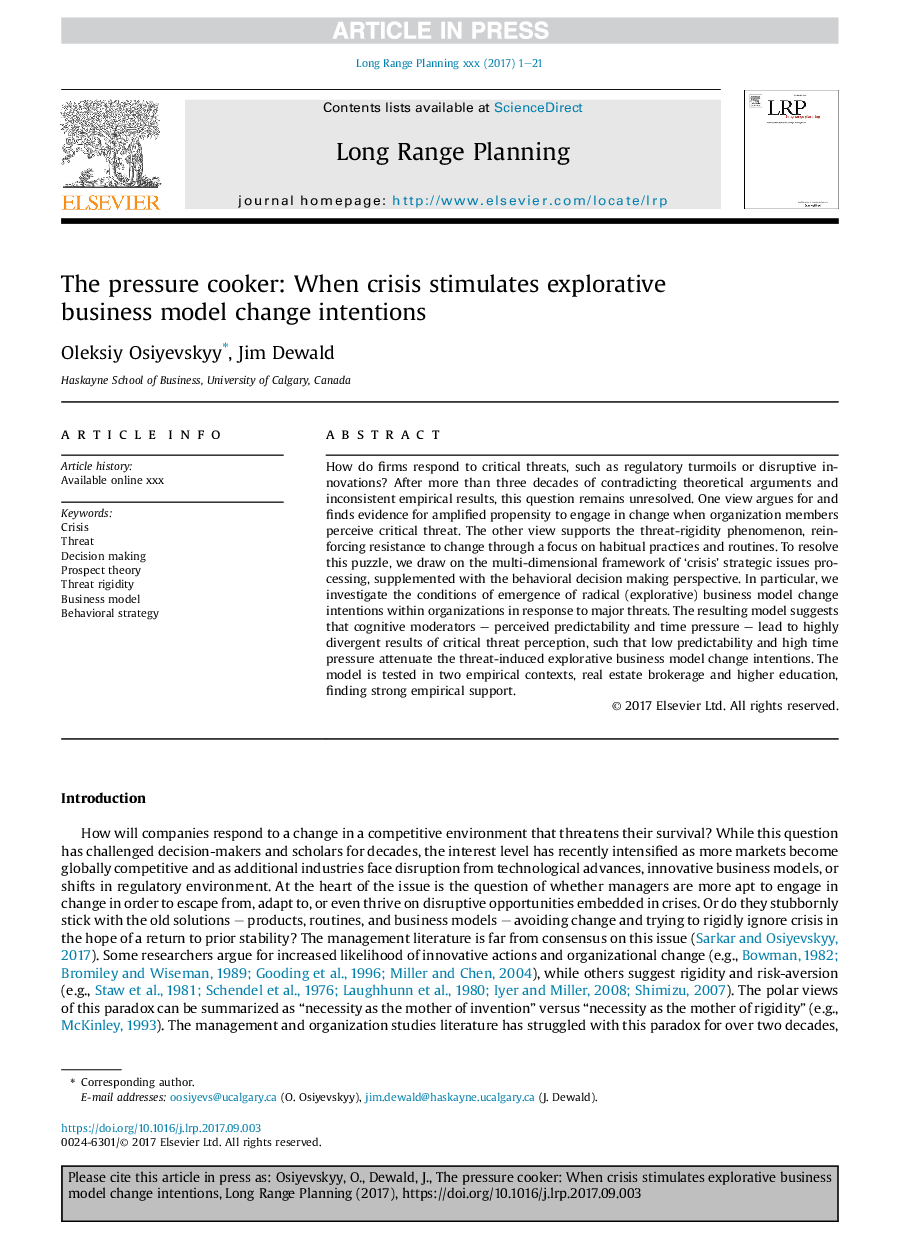| Article ID | Journal | Published Year | Pages | File Type |
|---|---|---|---|---|
| 10154024 | Long Range Planning | 2018 | 21 Pages |
Abstract
How do firms respond to critical threats, such as regulatory turmoils or disruptive innovations? After more than three decades of contradicting theoretical arguments and inconsistent empirical results, this question remains unresolved. One view argues for and finds evidence for amplified propensity to engage in change when organization members perceive critical threat. The other view supports the threat-rigidity phenomenon, reinforcing resistance to change through a focus on habitual practices and routines. To resolve this puzzle, we draw on the multi-dimensional framework of 'crisis' strategic issues processing, supplemented with the behavioral decision making perspective. In particular, we investigate the conditions of emergence of radical (explorative) business model change intentions within organizations in response to major threats. The resulting model suggests that cognitive moderators - perceived predictability and time pressure - lead to highly divergent results of critical threat perception, such that low predictability and high time pressure attenuate the threat-induced explorative business model change intentions. The model is tested in two empirical contexts, real estate brokerage and higher education, finding strong empirical support.
Related Topics
Social Sciences and Humanities
Business, Management and Accounting
Business and International Management
Authors
Oleksiy Osiyevskyy, Jim Dewald,
